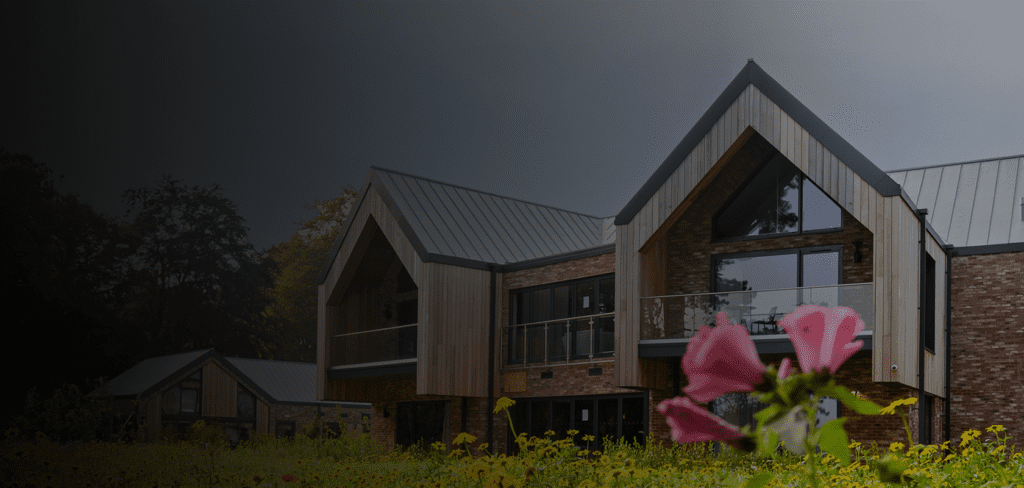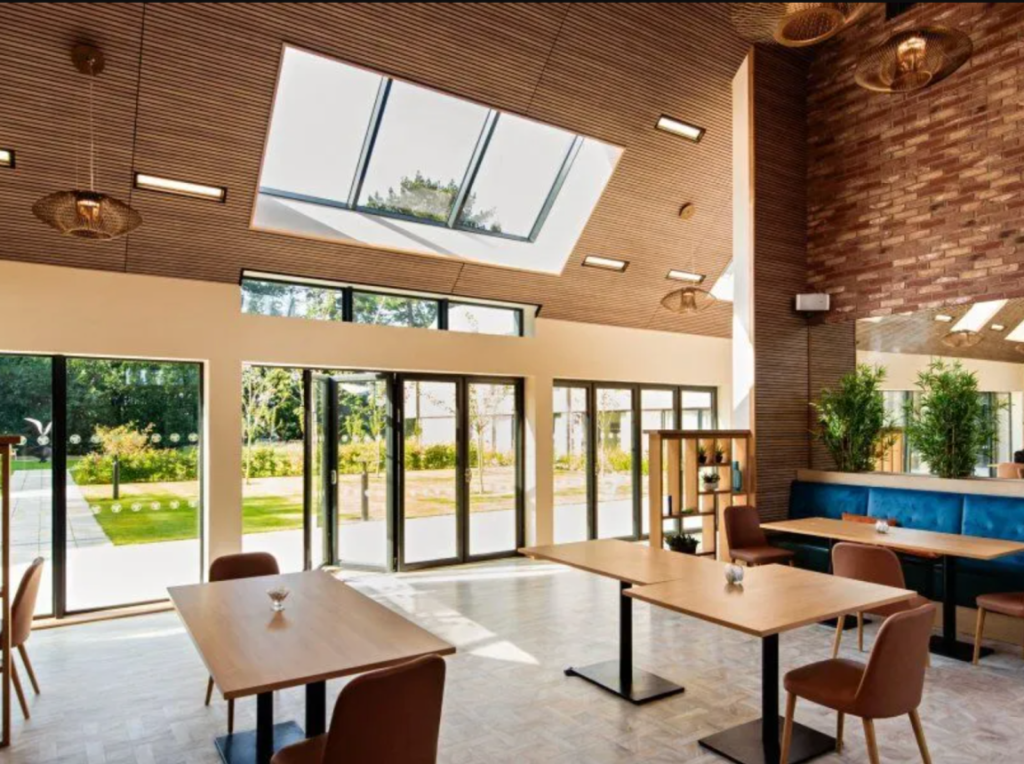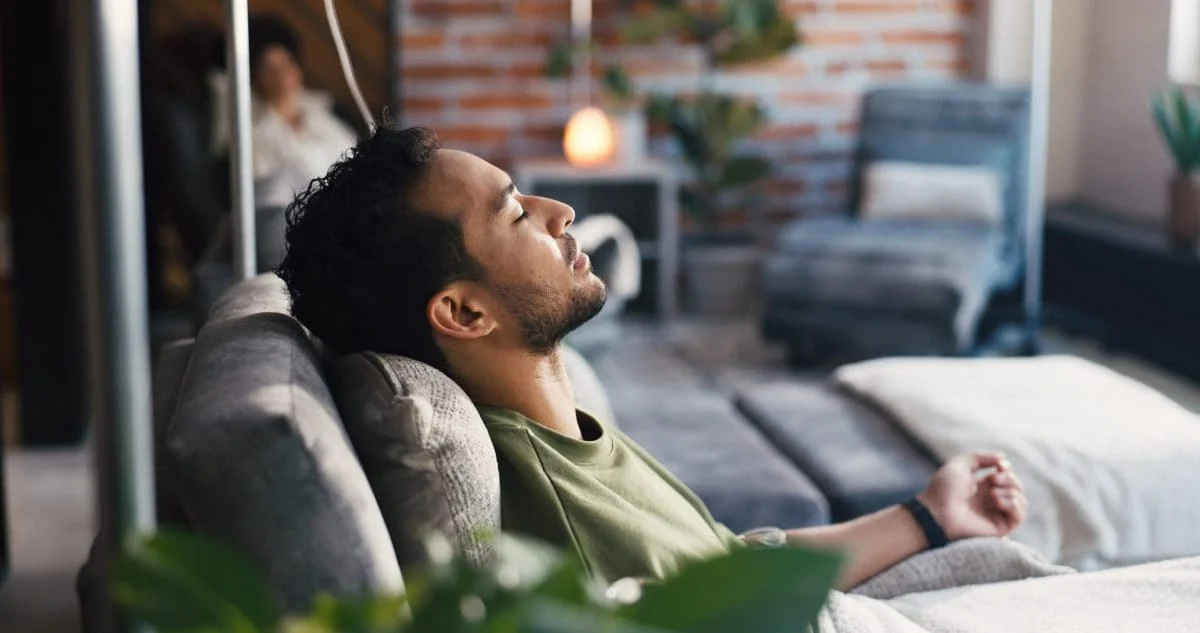“We recognise that seeking help with addiction is a huge step. Many of our team have lived experience of addiction and recovery; we’ve found this helps people find the courage to reach out for help.”
Zopiclone Addiction
Having difficulty getting to sleep or waking in the night is common, usually short-lived and often resolves on its own. However, if insomnia becomes severe, your doctor may prescribe a sleeping pill, such as zopiclone. This type of medication is not recommended for prolonged use and if taken in high doses, may cause the user to develop a zopiclone addiction.


Help for zopiclone addiction at Delamere
At Delamere private rehab clinic we provide zopiclone addiction treatment within our purpose-built facility. Our rural Cheshire location provides a calming environment to safely withdraw from the physical dependence on sleeping pills, alongside a broad range of evidence-based therapeutic techniques to help you overcome your zopiclone addiction.
At the heart of Delamere is our multidisciplinary team of psychiatrists, doctors, 24-hour on-site nurses, recovery mentors, and well-being staff, many of whom use their own experiences of addiction and recovery to approach guest relations from a place of total understanding and compassion.
United by the common goal of seeing our guests succeed, the staff at Delamere provide exemplary care, nursing guests back to health and providing them with the tools they need to grow from their addictions.
Delamere offers guests the opportunity to press the pause button on the distractions of the outside world and focus their attention on healing from a zopiclone addiction. Our purpose-built clinic in rural Cheshire has been designed to maximise relaxation and make the most of our tranquil surroundings, making it a conducive environment for receiving zopiclone addiction help and welcoming new beginnings.
What if?
“They have given me my life back. I feel more empowered, confident, and ready to face life again. I will be forever grateful for their unwavering support and care.” – Former Delamere Guest
View Our Treatment Model View our Environment Call now: 0330 111 2015
When to seek zopiclone addiction treatment
Zopiclone is often abused by people suffering from anxiety and depression for its calming effect on the brain. It is also frequently combined with other substances, such as alcohol and painkillers to intensify the euphoric state. This can be extremely dangerous, even fatal. It’s important to only take zopiclone as directed. If you, or someone you love, has been prescribed zopiclone and is finding it hard to stick to the recommended dose or developing daily cravings, it’s time to seek professional help.
Sleeping pill rehab is available at Delamere, providing guests with a safe space to complete a supported zopiclone detox under the supervision of our 24-hour on-site nurses.
Whether you are concerned about your own or someone else’s relationship with zopiclone, you may observe some of the following signs and symptoms of zopiclone addiction:
- Requiring increasing amounts to fall asleep.
- Being unable to stop taking zopiclone.
- Avoiding work, social or family commitments.
- Withdrawing from previously enjoyed activities.
- Experiencing mood swings, cravings, or withdrawal symptoms.


The Delamere approach to zopiclone addiction
An inpatient stay at Delamere is a deliberately intensive 4-phase zopiclone addiction treatment programme, one which we have crafted over time and has helped many participants recover. Our emphasis is on holistic care to treat addiction and associated issues. This means that we treat the whole person rather than just the symptoms they present with. We believe that successful treatment runs far deeper than simply stopping the addictive substance or behaviour.
Our approach at Delamere comprises 4 core phases: Stop, Start, Grow, & Bloom. Everything we offer at Delamere aims at effective and lasting outcomes in addiction treatment:
How to encourage a loved one to get zopiclone addiction treatment
Zopiclone addiction can wreak havoc not just on the life of the individual but also on those around them. When someone close to you, perhaps a family member, friend, or colleague, is struggling with a sleeping pill addiction it can be hard to know what to do for the best. At Delamere, we provide family support services and intervention services to help you through this challenging time and assist your loved one in accepting help.
Frequently asked questions about zopiclone addiction
It’s surprisingly common for people to develop a prescription drug addiction. Sleeping pills like zopiclone are often seen as safe and non-addictive. However, any substance that gives pleasure or helps relaxation can quickly become ingrained in people’s lives with damaging consequences. If you recognise zopiclone addiction in yourself or someone else, it’s time to get help.
Delamere is a purpose-built wellness retreat that has been specifically designed to help people undergo a safe and comfortable sleeping pill detox. Our holistic therapists are on hand to help guests throughout every part of the process, both physically withdrawing from zopiclone and mentally rebuilding their lives. We use a combination of 1-1 counselling, group therapy sessions and somatic healing techniques, including equine therapy, to help our guests free themselves from zopiclone addiction.
Let us help you today
Start your recovery journey by contacting us today.
Confidential. Straightforward. Friendly.
Help and Support for Zopiclone Addiction Recovery
Discover more advice on the Delamere blog
-
Librium detox: A guide to withdrawal and recovery
Read our guide to withdrawal & recovery of librium. We discuss the addictive potential & when a Librium detox may be required.
-
Key signs to look out for that put you at risk of pill addiction
At the beginning of this year, Adam Collard opened up about his painkiller addiction. We've pulled together risks to look out for.
-
Signs of prescription drug dependency
Long-term dependency on prescription drugs can lead to a wide range of health complications, find out more at Delamere.
-
5 signs someone has a painkiller addiction
Delamere’s holistic therapists discuss Valium addiction and its impact with advice on how to get help.





















